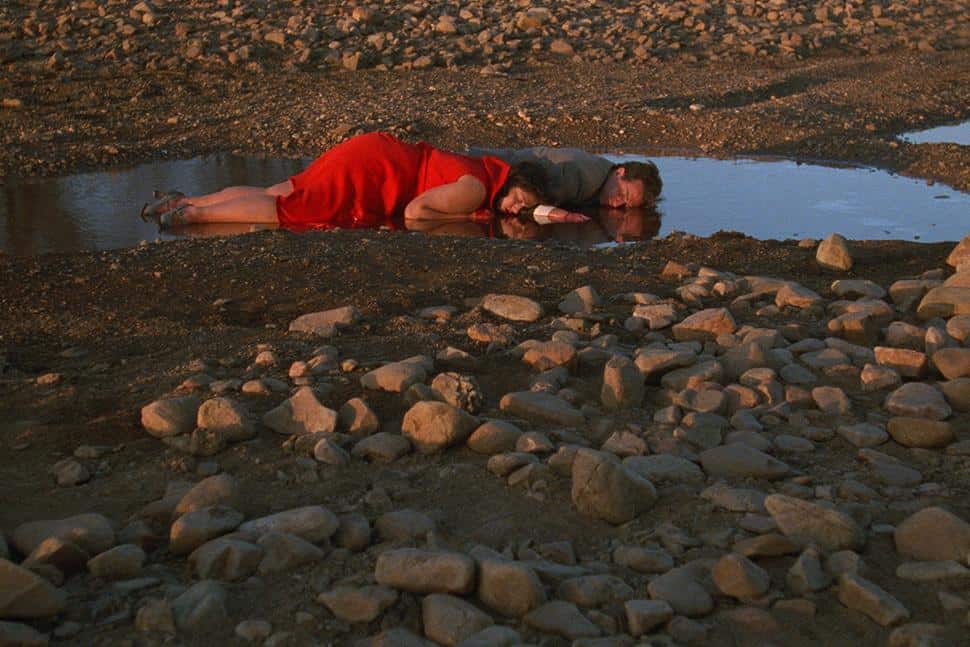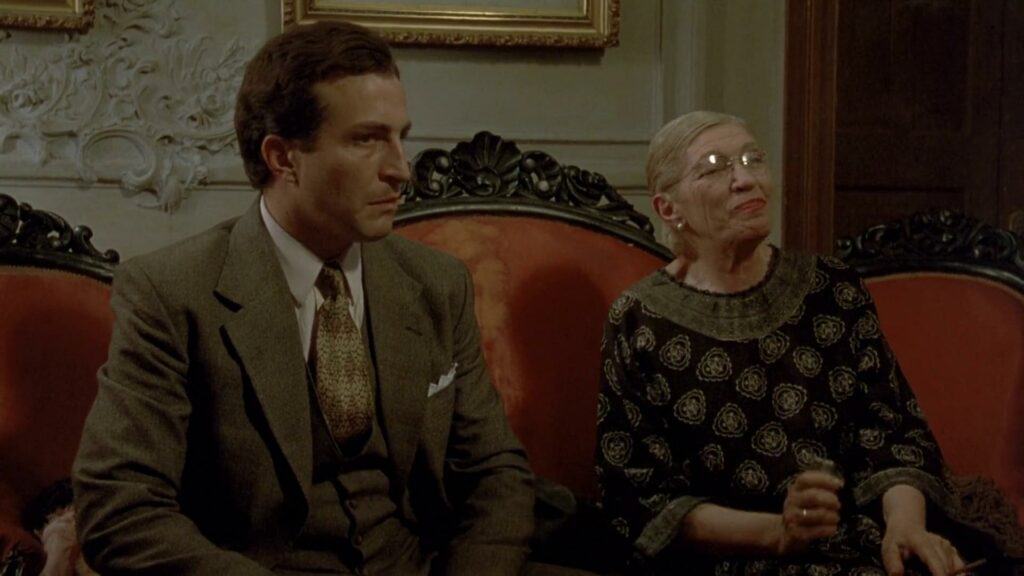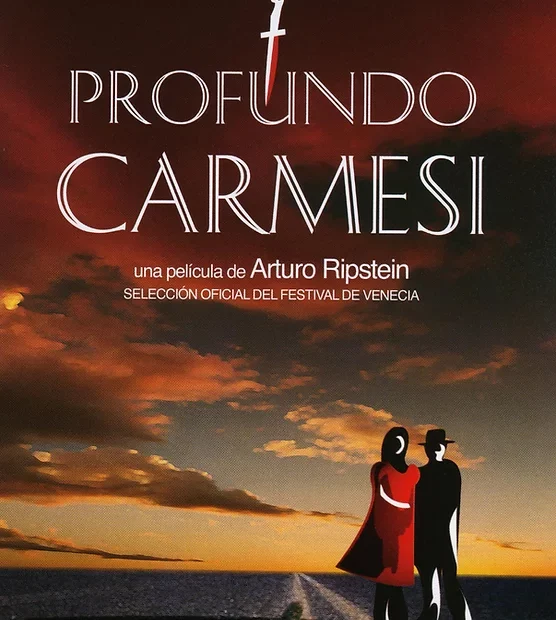Deep Crimson (Profundo carmesi) is one of the great Mexican director Arturo Ripstein’s best works. It premiered at the Venice Film Festival in 1996. The cut that was presented then ran 115 minutes. 27 years later, the director managed to restore his original vision, adding 24 minutes to the film. In writing, he explained the difference between the two cuts: “In the first version of the film, the events occurred practically because of the complicity of the characters. In this new, restored version, the events occur as a result of an extreme love affair.”
In a pre-recorded video presented before the screening in Venice, he added that he hoped the restored version would be more disturbing than the original cut. Judging by the screening I attended, he achieved that aim. The story is based on the story from the 1940s about the “Lonely Hearts Killers”, a couple who posed as brother and sister, victimized lonely widows, and finally killed them. The story was the basis for The Honeymoon Killers (1970). Coral (Regina Orozco) is a highly obese woman with two children. She gets in touch with Nicolas, a confidence trickster who courts women to steal their money. Coral gets wise to him, but instead of exposing him, becomes his partner in crime.

Blood like Deep Crimson
She dumps her kids in an orphanage and gets ready to follow her love, even though he has already fooled her twice. She is an all-too-willing accomplice to Nicolas’s crimes, even when they turn seriously violent. The early section of the film has obvious comedic elements. It’s up to the viewer to decide how long the fun lasts since this is a work that will take some seriously dark turns. Marisa Paredes has a memorable part as a deeply religious woman who becomes one of the pair’s victims. Her neighbour, Sara Silberman (Rosa Furman), sees right through the couple immediately. She is, basically, the only intelligent individual in the story, and she has some of the film’s best lines.
Before the pair met each other, Nicolas was merely taking the women’s money. It’s Coral who adds the killings to the proceedings. It’s no exaggeration to state that the two bring out the worst in each other, which simultaneously seems to bring them comfort and a particular joy. She sees him as her idol, Charles Boyer. He is ridiculously vain and never leaves the house without his wig. Deep Crimson is a perverted work, which is unquestionably not designed for those who demand that a film’s characters should be likeable. However, they are still believable and relatable, which renders the work even darker. As Ripstein said, it is a love story, even if it is an extreme one.

Deep Crimson is aesthetically gorgeous. This was the first of Ripstein’s features shot by Guillermo Granillo. They would make four more films together. The colours and the perpetual camera movements elevate the sense of the grisly deeds while simultaneously acting as a counterpart. This was David Mansfield’s first score for the director, as well. He would go on to be the composer of six subsequent Ripstein films. The script was written by Paz Alicia Garciadiego. She has provided countless scripts for her director husband. Even though the film relies on the true events and the previous film version, she manages to put her own sardonic mark on the work.
Going back to Ripstein’s hope that the director’s cut would be disturbing, that was evidently the case at the Venice festival. There were numerous walkouts, and I witnessed two women arguing with the respective men they were with until they finally fled for the exit. That a film from 1996 still elicits such a reaction says something about the unsettling nature of Deep Crimson. In comparison, a similar scene in Cronenberg’s latest film, Crimes of the Future (2022), didn’t cause any such reactions, even though the director had promised walkouts before the Cannes screening.
Ripstein is one of, not many great directors who are still alive. It’s high time for a major festival to pay him a tribute with a retrospective. There was a small series at Transatlantyk in Łódź a few years ago. I think that the director of masterpieces such as La Mujer del puerto (1991), Principio y fin (1993), La reina de la noche (1994), and many others, deserves a proper retrospective. That is without mentioning Castillo de pa pureza (1973), which, in my mind, is a clear precursor to a certain Greek director’s breakthrough film.



The original version was pretty disturbing. I worked at the Sundance Film Festival where it played in the World Cinema section. I worked two screenings. Both of them had MASSIVE walkouts, probably a quarter of the audience left when it became clear…